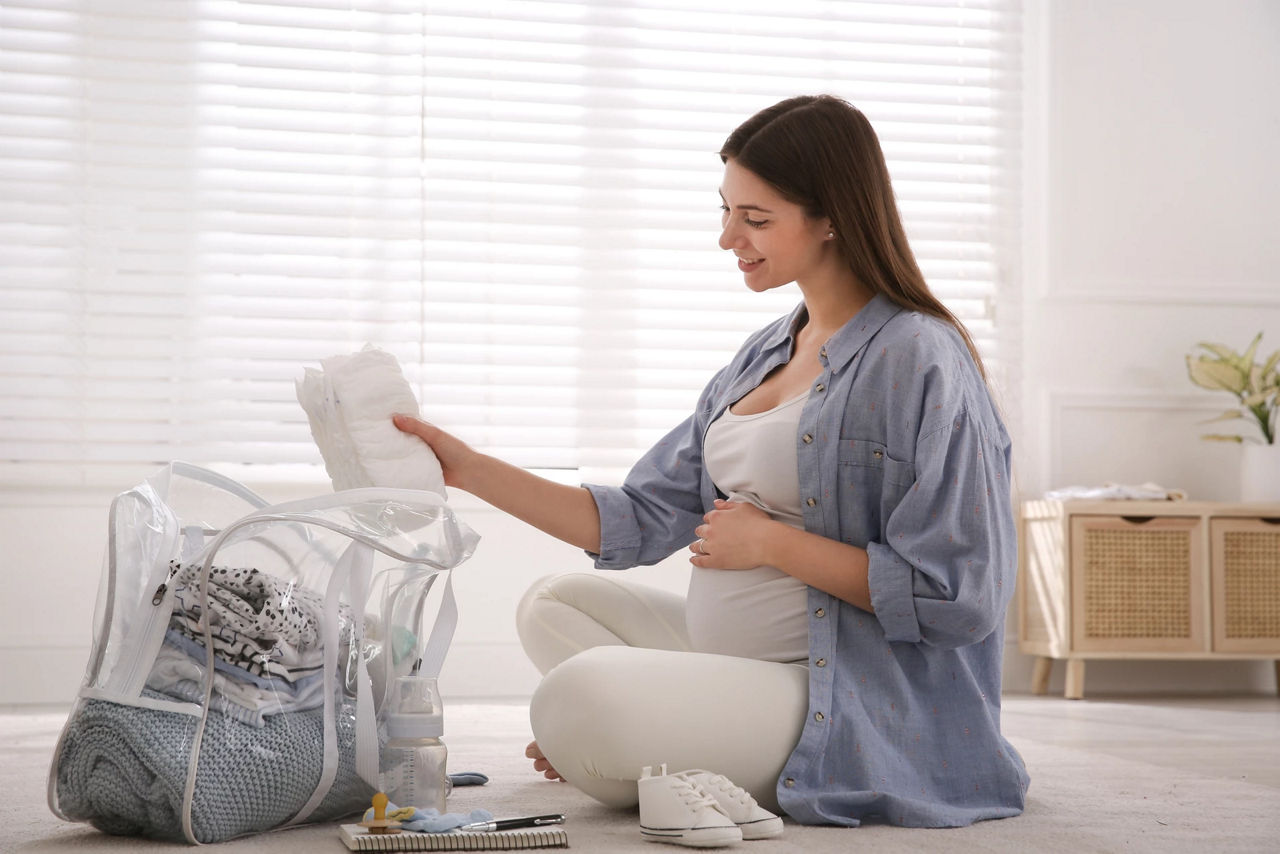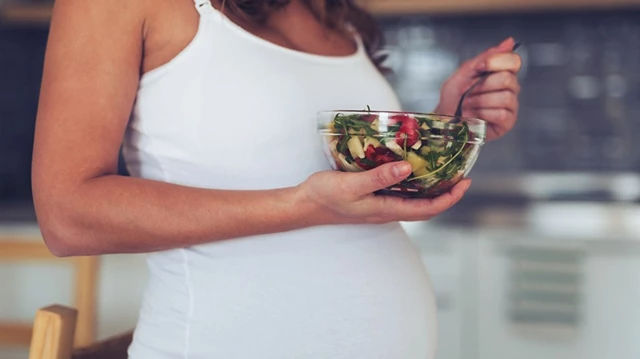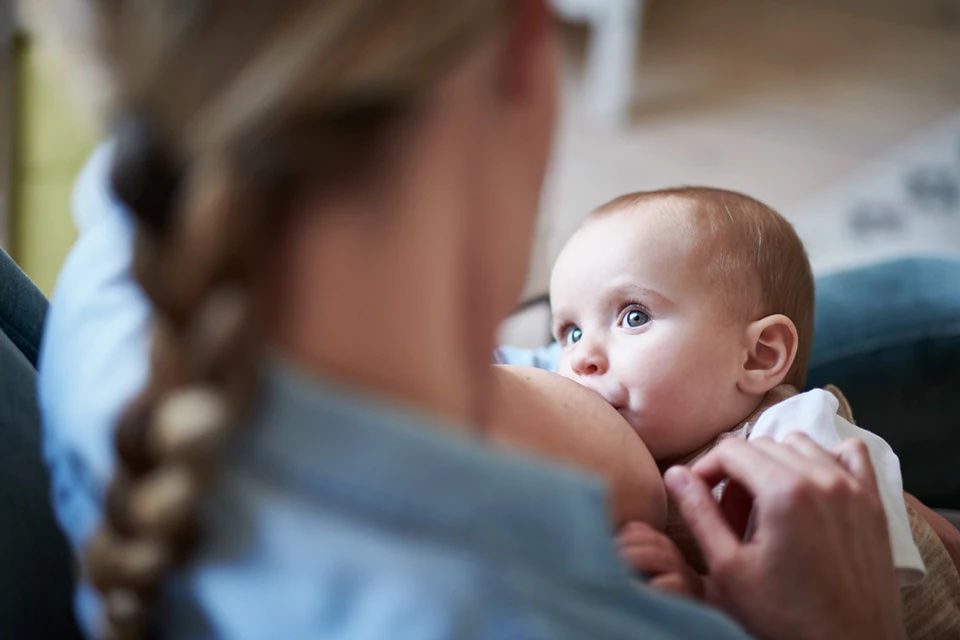Although their growth is slowing a little during week 31 of pregnancy, their development continues, with eye colour now starting to form. Vitamin C plays a role in iron absorption, whilst iron continues to support their cognitive function.
31 weeks pregnant
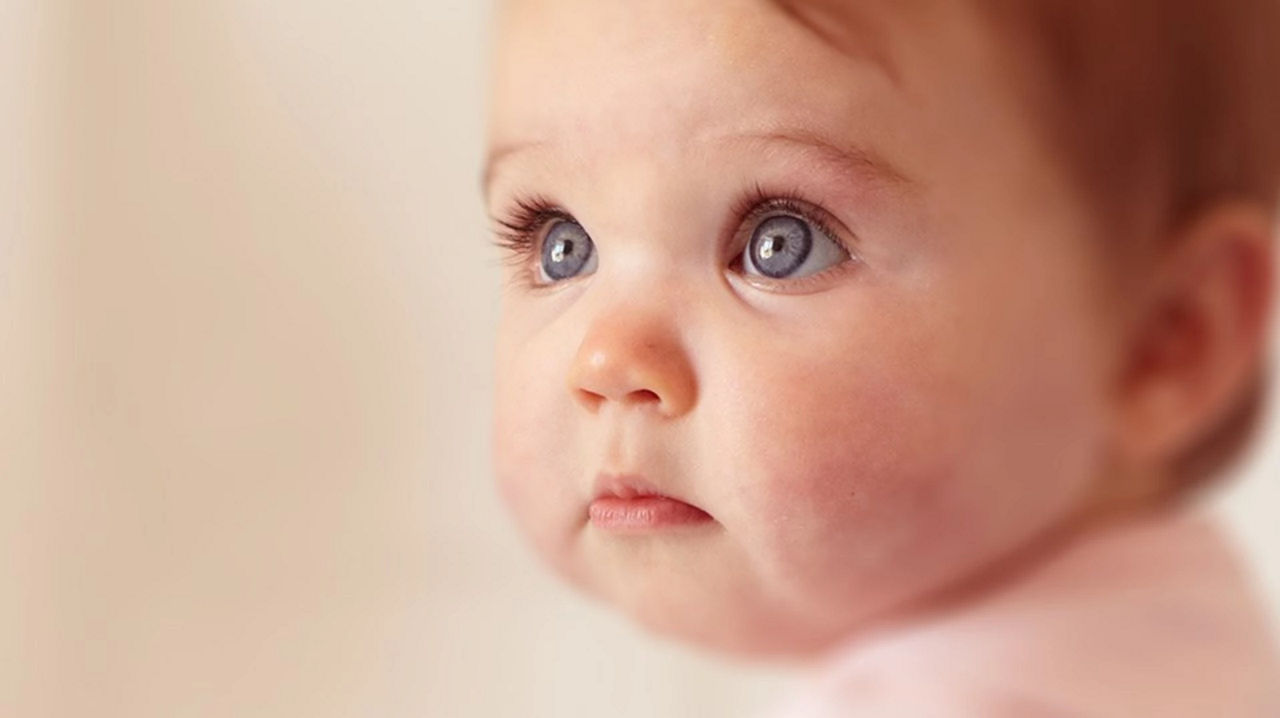
Explore pregnancy stages week by week
All in the eyes
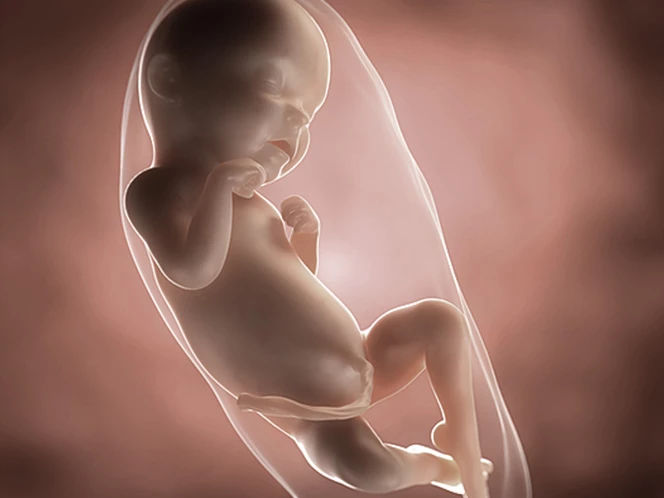 Your baby's development at 31 weeks
Your baby's development at 31 weeks
Developing eye colour in week 31
At roughly 28cm long from crown to rump, and 3lb 5oz, your baby is still gaining weight in week 31 of pregnancy, but their growth is starting to slow a little1. The amount of fluid in your uterus, however, is increasing. Until they are born, your baby will continue to inhale2 and swallow this amniotic fluid and excrete it as urine3.
It’s around the 31st week that your baby’s eye colour is developing, and while most Caucasian babies are born with blue eyes, if they are destined to change, their true colour can take months to emerge.
Whatever colour they eventually become, your baby’s eyes are already responsive to light, with the pupils able to dilate. Their eyelids are now well developed, allowing your baby to open and close their eyes at will1. Read more about your baby's eyes at birth.
Your baby’s eye pigment is developing now, but can take months after birth to develop into their true colour.
Can I influence the colour of my baby’s eyes?
Your baby’s eye colour is determined largely by genetics . Nothing you do or eat in pregnancy, or indeed after your baby is born, can change it. If both you and your partner have the same eye colour, there is a high chance your baby will too – but it’s not a certainty. Your family’s genes, which include those of your parents, can mix and match to produce many different results.
Vitamin C – aids iron absorption
With all the new cognitive functions your baby is developing, it is important to ensure that your diet provides them with sufficient supplies of iron, together with vitamin C to aid its absorption from plant sources (non-haem sources). Needed to protect cells and aid in the production of collagen, which forms cartilage, tendons, bones and skin4, vitamin C it is an important part of your pregnancy diet.
For this reason, it’s a good idea to consume vitamin C with, or after, certain iron-rich foods. For example, a glass of orange juice with a vegetable stir-fry, salmon and broccoli bake, or a kiwi fruit and some cashew nuts.
Vitamin C and iron can be found naturally in many different foods, so getting a good balance in your diet should not be too difficult. The Reference Nutrient Intake (RNI) of vitamin C during pregnancy is 40mg per day, with an extra 10mg in the 3rd trimester of pregnancy6.
Vitamin C assists the absorption of iron, which supports your baby’s cognitive function.
Next Steps
Try to add one of these sources of vitamin C at mealtimes:
- Fruit – oranges, kiwi fruit, strawberries or blueberries
- A squeeze of lemon or lime
- Fruit juice
- Steamed broccoli
- Raw spinach leaves
- Tomatoes
- Brussels sprouts
related articles
Read More

Need some help?
You can get quick answers to common questions in our FAQs.
Alternatively, if you need help with general pregnancy or baby advice, or maybe on using or ordering our products - our expert team are always on hand to talk about feeding your baby.
- Deans A. Your New Pregnancy Bible, The experts’ guide to pregnancy and early parenthood. 4th ed. London: Carroll & Brown Publishers Limited, 2013. p. 46.
- NHS UK. What is the amniotic sac? [Online]. 2015. Available at: www.nhs.uk/chq/Pages/2310.aspx?CategoryID=54 [Accessed August 2016].
- NHS UK. You and your baby at 29-32 weeks pregnant [Online]. 2015. Available at: www.nhs.uk/conditions/pregnancy-and-baby/pages/pregnancy-weeks-29-30-31-32.aspx [Accessed August 2016].
- Commission Regulation (EU) No 432/2012 of 16 May 2012 establishing a list of permitted health claims made on foods, other than those referring to the reduction of disease risk and to children’s development and health. OJ L 136, 25.5.2012, pp. 1–40.
- Commission Regulation (EU) No 957/2010 of 22 October 2010 on the authorisation and refusal of authorisation of certain health claims made on foods and referring to the reduction of disease risk and to children’s development and health. OJ L 279, 23.10.2010, pp. 13–17.
- British Nutrition Foundation. Minerals and trace elements [Online]. 2009. www.nutrition.org.uk/nutritionscience/nutrients/minerals-and-trace-elements?start=15 [Accessed August 2016].
Last reviewed: 11th June 2019
Reviewed by Nutricia’s Medical and Scientific Affairs Team

